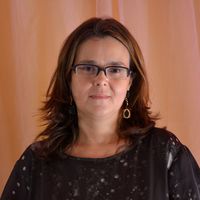Celeste Jiménez de Madariaga - Profile on Academia.edu (original) (raw)

Related Authors
Uploads
Papers by Celeste Jiménez de Madariaga
Reproducción de devociones andaluzas en Madrid
Cruces de mayo de la provincia de Huelva. Rituales festivos y confrontación social
Más allá de Andalucía: reproducción de devociones andaluzas en Madrid
Aprovechamiento y gestión de recursos cinegéticos
Viii Congreso De Antropologia Vol 6 1999 Isbn 84 95397 06 4 Pags 71 78, 1999
Andalucía. Identidades culturales y dinámicas sociales
Arbor, 2011
The Spanish Constitution (1978) and Law of Religious Freedom (1980) open the possibility of relig... more The Spanish Constitution (1978) and Law of Religious Freedom (1980) open the possibility of religious pluralism in Spain, a possibility that in principle will stagnate within the framework legislative without a projection in the social practice. The passage towards the exercise of the religious plurality, its institutionalization, is intensifying in the last years as result of the diversification of the religions and the increase foreign immigration. In this paper, the author dwells to analyze how religious pluralism in the Spanish educative scope is being fitted. She shows the problems that consider when the right to the education of the religion -of the religions-it is applied in the schools where, in addition, the historical presence of the catholic religion prevails.
Antropóloga, Universidad de Granada. veronicasuarez_ugr@yahoo.es RESUMEN El colectivo de migrante... more Antropóloga, Universidad de Granada. veronicasuarez_ugr@yahoo.es RESUMEN El colectivo de migrantes de origen boliviano constituye la nacionalidad extranjera más numerosa en la localidad de Purchil, en la Vega granadina. Entre ellos, desde los últimos cinco años, se está creando una comunidad cristiana evangélica compuesta por personas de esta nacionalidad. En este proceso de gestación y consolidación en el contexto migratorio concreto de Purchil, confluyen varios factores: la propia experiencia migratoria de una veintena de miembros bolivianos, apoyados externamente por el propio entorno confesional del país de origen y por otras comunidades evangélicas de Granada. También participa la administración local de Purchil. La forma preferente de agrupamiento es en torno al espacio y el tiempo religiosos de la comunidad cristiana evangélica. En este sentido, las prácticas religiosas constituyen para sus miembros una estrategia de adaptación al nuevo contexto migratorio, en donde despliegan sus creencias del país de origen en interrelación con las homónimas del país de acogida.
Reproducción de devociones andaluzas en Madrid
Cruces de mayo de la provincia de Huelva. Rituales festivos y confrontación social
Más allá de Andalucía: reproducción de devociones andaluzas en Madrid
Aprovechamiento y gestión de recursos cinegéticos
Viii Congreso De Antropologia Vol 6 1999 Isbn 84 95397 06 4 Pags 71 78, 1999
Andalucía. Identidades culturales y dinámicas sociales
Arbor, 2011
The Spanish Constitution (1978) and Law of Religious Freedom (1980) open the possibility of relig... more The Spanish Constitution (1978) and Law of Religious Freedom (1980) open the possibility of religious pluralism in Spain, a possibility that in principle will stagnate within the framework legislative without a projection in the social practice. The passage towards the exercise of the religious plurality, its institutionalization, is intensifying in the last years as result of the diversification of the religions and the increase foreign immigration. In this paper, the author dwells to analyze how religious pluralism in the Spanish educative scope is being fitted. She shows the problems that consider when the right to the education of the religion -of the religions-it is applied in the schools where, in addition, the historical presence of the catholic religion prevails.
Antropóloga, Universidad de Granada. veronicasuarez_ugr@yahoo.es RESUMEN El colectivo de migrante... more Antropóloga, Universidad de Granada. veronicasuarez_ugr@yahoo.es RESUMEN El colectivo de migrantes de origen boliviano constituye la nacionalidad extranjera más numerosa en la localidad de Purchil, en la Vega granadina. Entre ellos, desde los últimos cinco años, se está creando una comunidad cristiana evangélica compuesta por personas de esta nacionalidad. En este proceso de gestación y consolidación en el contexto migratorio concreto de Purchil, confluyen varios factores: la propia experiencia migratoria de una veintena de miembros bolivianos, apoyados externamente por el propio entorno confesional del país de origen y por otras comunidades evangélicas de Granada. También participa la administración local de Purchil. La forma preferente de agrupamiento es en torno al espacio y el tiempo religiosos de la comunidad cristiana evangélica. En este sentido, las prácticas religiosas constituyen para sus miembros una estrategia de adaptación al nuevo contexto migratorio, en donde despliegan sus creencias del país de origen en interrelación con las homónimas del país de acogida.












